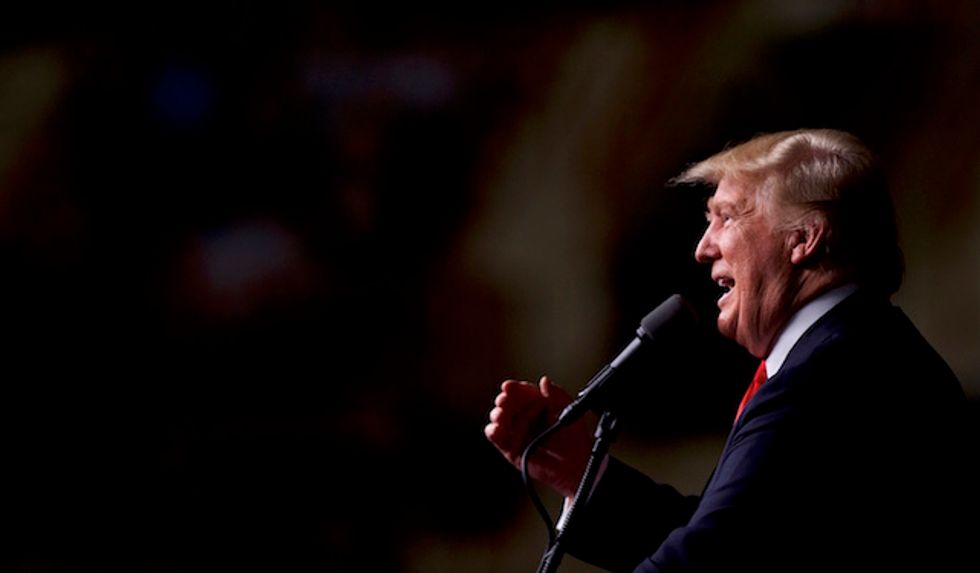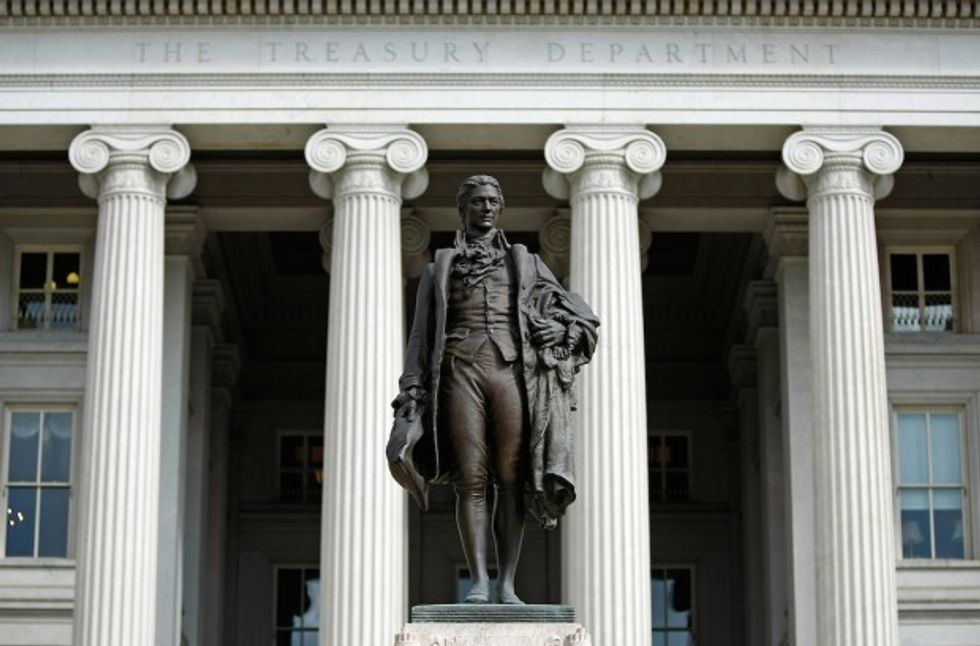
© 2025 Blaze Media LLC. All rights reserved.
Party divisions are nothing new. Alexander Hamilton's description of the Federalist president in 1800 echoes how some Republicans might view presumptive 2016 GOP nominee Donald Trump today. This helped pave the way for Thomas Jefferson's victory.
The following is an excerpt from Tainted by Suspicion: The Secret Deals and Electoral Chaos of Disputed Presidential Elections (Stairway Press) by Fred Lucas, available now on eBook and in bookstores in June. This excerpt looks at how the similarities in the divisions of the Federalist party in the election of 1800 the Republican party in 2016, and how Alexander Hamilton used words that some in the GOP would utter to describe presumptive nominee, Donald Trump.
While the Democratic-Republicans had strong organization throughout the country, the Alexander Hamilton-John Adams rift left the Federalists fractured.
It was perhaps Hamilton’s propensity to truly loathe political rivals, or even allow his emotions to create heated rivalries, that helped determine this election. He was extremely angry with Adams for being overly moderate and not going to full-scale war with France in 1798, a conflict in which he hoped to be a glorious general. The break between the moderate Adams Federalists and Hamilton’s High Federalists helped make the president’s party dysfunctional against the Democratic-Republican well-organized apparatus.

As today, it’s easy to imagine elements of either party being so annoyed by sellout candidates they would just as soon lose the election, believing a defeat could even be better for their party’s future and ideological strength as opposed to a squishy moderate who will give away the store to the other side. This was essentially how Hamilton felt about the choice of Adams and Jefferson.
“If we must have an enemy as the head of government, let it be one whom we can oppose, and for whom we are not responsible, who will not involve our party in the disgrace of his foolishness and bad measures,” Hamilton said.
High Federalists wanted Hamilton to lead the party into battle with Jefferson instead as the presidential candidate. Hamilton knew this was not practical, so he orchestrated a way to get [Adams running mate] Charles Pinckney elected president instead of Adams. Hamilton hit several New England states to push the idea in the heart of Federalism. It is ironic that by happenstance, it was the Jeffersonians that nearly saw the vice presidential designate Aaron Burr take the top prize.
During the George Washington administration, Hamilton had the first president’s ear while Jefferson was simply tolerated. As president, Adams wouldn’t bend to Hamilton’s whims.
Though the sedition law seemed overly sweeping by most measures, Hamilton and his supporters believed Adams wasn’t stern enough. Hamilton was also certain he would have more influence over Pinckney than the more independent Adams.
Hamilton’s 50-page letter excoriating Adams leaked into the Democratic-Republican newspapers. The surrounding publicity closed off any future hopes of Hamilton ascending to the presidency—and it didn’t do a lot of good for Adams re-election campaign. In a message targeted at Federalists in South Carolina, Hamilton wrote:
“Few go as far in their objections as I do. Not denying to Mr. Adams patriotism and integrity and even talents of a certain kind, I should be deficient in candor, were I to conceal the conviction, that he does possess the talents adapted to the administration of government, and that there are great intrinsic defects in his character, which unfit him for the office of chief magistrate."
The letter titled The Public Conduct and Character of John Adams ran to the great humiliation of the president and Hamilton.
Adams expressed his own frustration of Hamilton, even blaming him for the loss of New York. He called him, “a man devoid of every moral principal—a bastard… Mr. Jefferson is an infinitely better man, a wiser one, I am sure, and if President, will act wisely. I know and would rather be vice under him or even minister resident at Hague than indebted to such a being as Hamilton for the presidency.”
Fred Lucas is the author of "Tainted by Suspicion: The Secret Deals and Electoral Electoral Chaos of Disputed Presidential Elections."
–
TheBlaze contributor channel supports an open discourse on a range of views. The opinions expressed in this channel are solely those of each individual author.
Want to leave a tip?
We answer to you. Help keep our content free of advertisers and big tech censorship by leaving a tip today.
Want to join the conversation?
Already a subscriber?
more stories
Sign up for the Blaze newsletter
By signing up, you agree to our Privacy Policy and Terms of Use, and agree to receive content that may sometimes include advertisements. You may opt out at any time.
© 2025 Blaze Media LLC. All rights reserved.
Get the stories that matter most delivered directly to your inbox.
By signing up, you agree to our Privacy Policy and Terms of Use, and agree to receive content that may sometimes include advertisements. You may opt out at any time.


